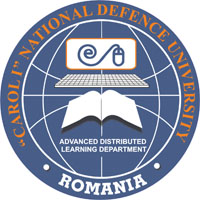PROJECT-BASED LEARNING BASED UPON THE CONSTRUCTIVIST METHOD FOR HIGH SCHOOL PHYSICS LESSONS
PROJECT-BASED LEARNING BASED UPON THE CONSTRUCTIVIST METHOD FOR HIGH SCHOOL PHYSICS LESSONS
Author(s): Claudia Daniela Cziprok, Florin F. PopescuSubject(s): Education
Published by: Carol I National Defence University Publishing House
Keywords: project-based learning; Constructivist Learning Method; cooperative learning; physics; geometrical optics; reflection and refraction of light; optical instruments
Summary/Abstract: The focus of this paper is to introduce the idea of project-based learning. An example is to implement project-based learning environments into the curriculum but yet still prepare students for high stakes standardized tests with an emphasis on performance. In addition to traditional course materials such as lectures and problem sets were used Open Educational Resources, online collaborative document creation and conceptual maps construction, also an online interactive space that helps users build a learning community. Web 2.0 tools have helped in organizing and completing work stages of projects for groups of students. Wikispaces for Education Platform provides facilities for creating workspaces and allocation the members of each group; access and editing rights management; automatic creation of links for easy navigation between groups pages; the perfect host for multimedia content, easily added, edited and formatted. Teaching included with Technology offered a greater amount of enthusiasm for learning among students and also it has brought more benefits. Students worked under their preferred intelligence, were excited to use their smart phones to take photos and record movies with simple experiments, interacted with their peers to problem solve and process information, and created a final product that demonstrates the knowledge they obtained, with a higher level of retention of the material being taught. As a review of the unit, they posted what they had learned as conceptual maps with resources. And because this work lived on the wiki, all the students in the class, regardless of which group they worked in, had a chance to learn from their peers - and could even go back to it to study for tests.
Journal: Conference proceedings of »eLearning and Software for Education« (eLSE)
- Issue Year: 11/2015
- Issue No: 03
- Page Range: 469-476
- Page Count: 8

